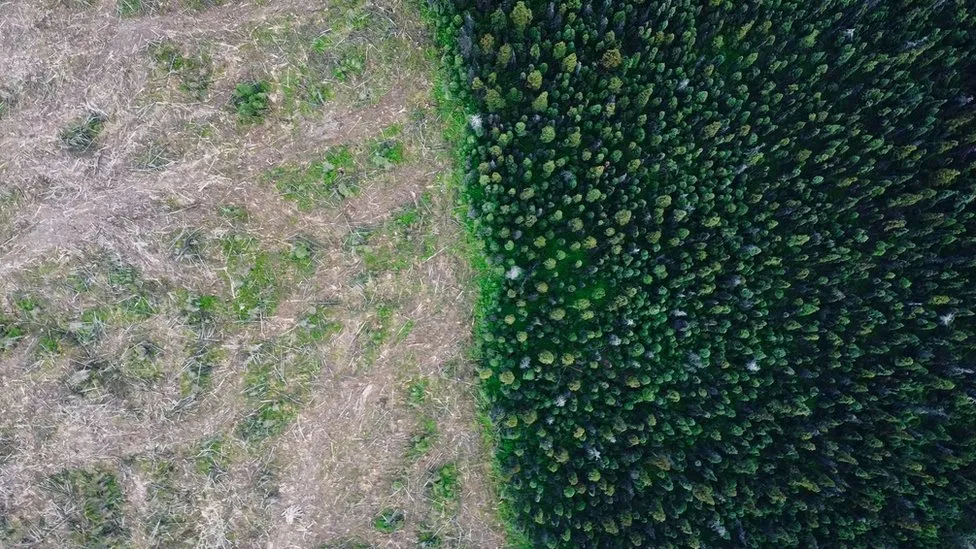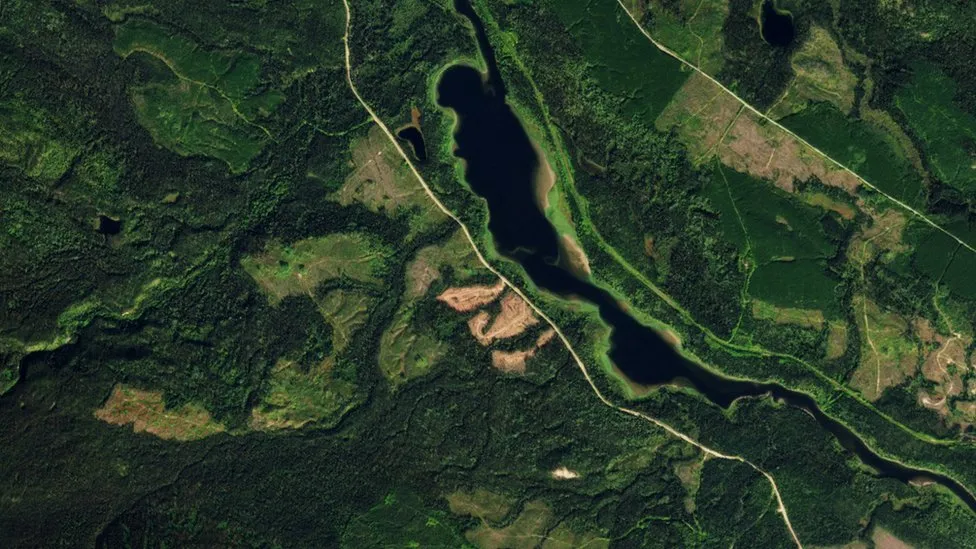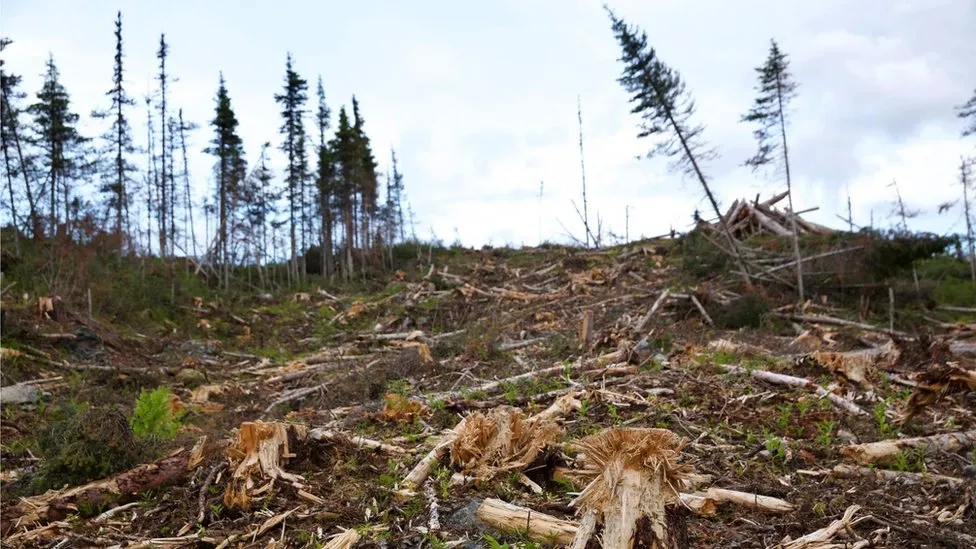Drax: UK Power Station Owner Cuts Down Primary Forests in Canada

More insanity from the anti-fossil fuel programs is reported below.
These wood pellets burn dirtier than natural gas, crude oil, or coal. The so-called “renewable” forests take centuries to regrow. The energy produced costs many times more per BTU than fossil fuels.
Meanwhile most all these countries sit on vast untapped reserves of cleaner, cheaper and environmentally-safer hydrocarbons which they refuse to use because they are blinkered by their unscientific “Green” ideologies.
NOTE: this article was originally published to BBC.com on October 3, 2022. It was written by Joe Crowley and Tim Robinson.
A company that has received billions of pounds in green energy subsidies from UK taxpayers is cutting down environmentally-important forests, a BBC Panorama investigation has found.
A company that has received billions of pounds in green energy subsidies from UK taxpayers is cutting down environmentally-important forests, a BBC Panorama investigation has found.
Drax runs Britain’s biggest power station, which burns millions of tonnes of imported wood pellets – which is classed as renewable energy.
The BBC has discovered some of the wood comes from primary forests in Canada.
The company says it only uses sawdust and waste wood.
Panorama analysed satellite images, traced logging licences and used drone filming to prove its findings. Reporter Joe Crowley also followed a truck from a Drax mill to verify it was picking up whole logs from an area of precious forest.
Ecologist Michelle Connolly told Panorama the company was destroying forests that had taken thousands of years to develop.
“It’s really a shame that British taxpayers are funding this destruction with their money. Logging natural forests and converting them into pellets to be burned for electricity, that is absolutely insane,” she said.
The Drax power station in Yorkshire is a converted coal plant, which now produces 12% of the UK’s renewable electricity.
It has already received £6bn in green energy subsidies. Burning wood is considered green, but it is controversial among environmentalists.
Panorama discovered Drax bought logging licences to cut down two areas of environmentally-important forest in British Columbia.

The Panorama team used drones to survey the area
One of the Drax forests is a square mile, including large areas that have been identified as rare, old-growth forest.
The provincial government of British Columbia says old-growth forests are particularly important and that companies should put off logging them.
Drax’s own responsible sourcing policy says it “will avoid damage or disturbance” to primary and old-growth forest.
However, the latest satellite pictures show Drax is now cutting down the forest.

Satellite images show forests cut down in British Columbia
The company told Panorama many of the trees there had died, and that logging would reduce the risk of wildfires.
The entire area covered by the second Drax logging licence has already been cut down.
How green is burning wood?
Burning wood produces more greenhouse gases than burning coal.
The electricity is classed as renewable because new trees are planted to replace the old ones and these new trees should recapture the carbon emitted by burning wood pellets.
But recapturing the carbon takes decades and the off-setting can only work if the pellets are made with wood from sustainable sources.
Primary forests, which have never been logged before and store vast quantities of carbon, are not considered a sustainable source. It is highly unlikely that replanted trees will ever hold as much carbon as the old forest.
Drax told the BBC it had not cut down the forests itself and said it transferred the logging licences to other companies.
But Panorama checked and the authorities in British Columbia confirmed that Drax still holds the licences.
Drax said it did not use the logs from the two sites Panorama identified. It said they were sent to timber mills – to make wood products – and that Drax only used the leftover sawdust for its pellets.
The company says it does use some logs – in general – to make wood pellets. It claims it only uses ones that are small, twisted, or rotten.

BBC Panorama visited the British Columbian forests
But documents on a Canadian forestry database show that only 11% of the logs delivered to the two Drax plants in the past year were classified as the lowest quality, which cannot be used for wood products.
Panorama wanted to see if logs from primary forests cut down by logging companies were being transferred to Drax’s Meadowbank pellet plant. The programme filmed a truck on a 120-mile round trip: leaving the plant, collecting piles of whole logs from the forest and then returning to the plant for their delivery.
Drax later admitted that it did use logs from the forest to make wood pellets. The company said they were species the timber industry did not want, and they would often be burned anyway to reduce wildfire risks.
The company also said the sites identified by Panorama were not primary forest because they were near roads.
But the UN definitions of primary forest do not mention proximity to roads and one of the sites is six miles from the nearest paved road.
Panorama’s findings come at a critical moment for Drax.
The UK government is due to publish a new biomass strategy later this year, which will set out its policy for natural fuels like wood.
A Drax spokesperson said 80% of material in its Canadian pellets is sawmill residuals, which would be disposed of anyway.
They also said that Drax applies stringent sustainability standards to its own pellet production as well as suppliers, with verification from third-party certification schemes.
“We are constantly reviewing these policies to ensure we take account of the latest science,” they added.
Panorama’s The Green Energy Scandal Exposed is on BBC One at 20:00 on Monday 3rd October and on iPlayer afterwards
